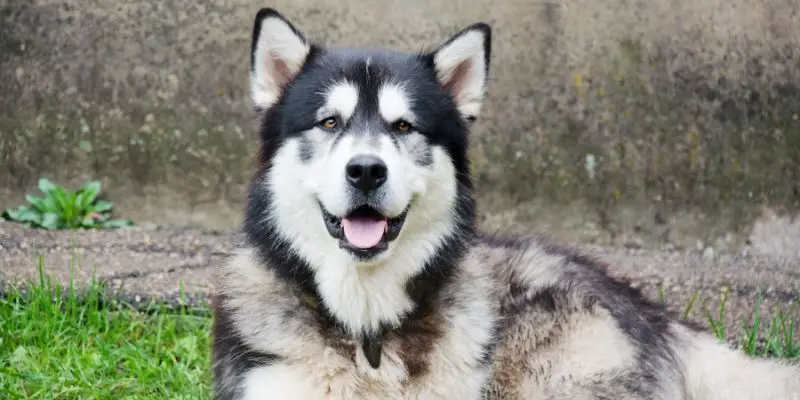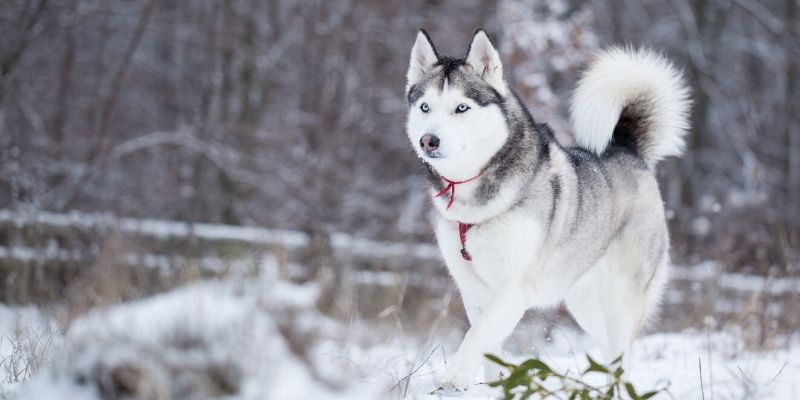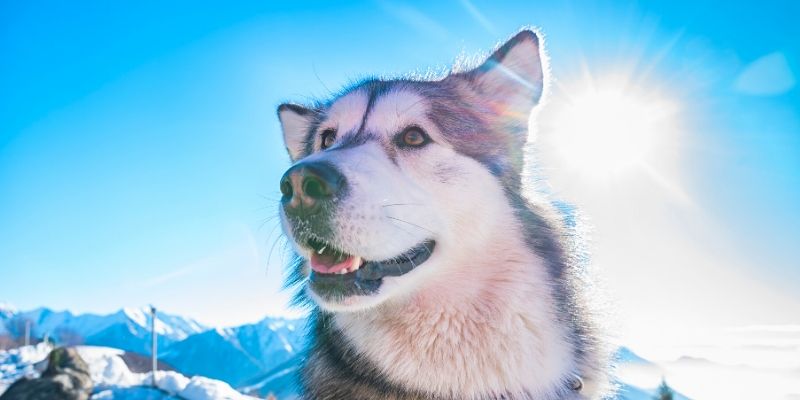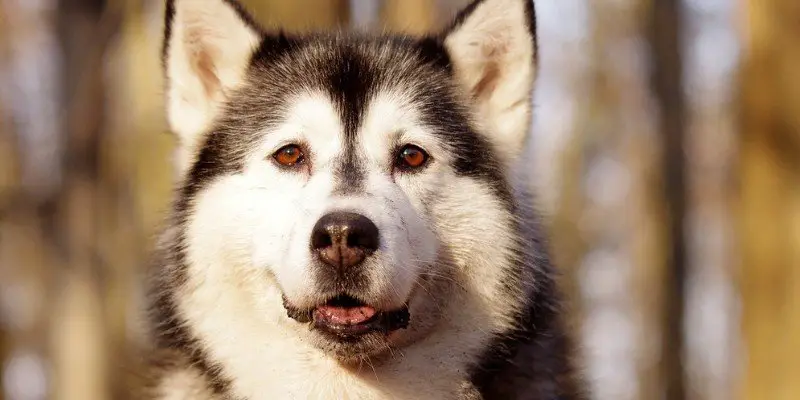Are you interested in a particular topic about Husky lifespan? Then use the table of contents below to jump to the most relevant section. In this article, we will focus on the life expectancy of Siberian and Alaskan Huskies, two of the most popular types.
And you can always go back by clicking on the black arrow in the right bottom corner of the page. Also, please note that some of the links in this article may be affiliate links. For more details, check the Disclosure section at the bottom of the page.
Here's what we'll cover:
Where do husky live?
Nowadays Huskies are greatly popular and can be encountered in all types of climates around the world — from Chukotka to Singapore. But initially, this sled-type of canine was cultivated in northern regions and developed by Arctic indigenous peoples. Those dogs were distinguished from other sled-types by their quick pulling method.
With time Husky transformed into the various breeds, recognized by many kennel organizations, including Labrador Husky, Siberian Husky, and even the one related to Akita Inu and Japanese Spitz, called The Sakhalin Husky. And each of them used to live in a different place. For instance, Siberian husky started in Asia as a sled dog and was widely utilized as work help.

Siberian husky lifespan
The typical lifespan of a Siberian husky is approximately 12 years, comparable to other dogs of a similar complexion. However, some Huskies can live for more than 15 years. Husky-girls usually live somewhat longer than males. But, this distinction is not very declared, so don’t be astonished if your male husky outlasts a female partner or sibling.

Since Siberian Huskies don’t need much food, they are ʺeasy keepersʺ. Remember, the primary purpose of the breed was to pull a full sled load very fast, for a very long time, at the low temperatures, on an insufficient calories intake. And it’s printed in their genes. Additionally, slimmer Huskies most likely to live longer lives.

Alaskan husky lifespan

The Alaskan Husky’s lifespan is about 12 to 15 years. Surprisingly this type of Husky is not recognized as a separate breed, but it’s appreciated and distinguished by dog-lovers all around the world.
The intention of creating an Alaskan Husky was to get the most hardworking pet possible. So the heritage of this dog will be related to the use of a particular Alaskan Husky.
It is commonly supposed to be a healthy breed but sometimes suffers from prerequisite genetic health problems comparable to those observed in purebreds.
Among those might be hypothyroidism, progressive retinal atrophy (that might end with blindness) and deformation of the larynx, that cause a funny wheezing sound when Alaskan Husky is breathing and explaining this dog’s nickname – “wheezer.”

How to increase your Husky life expectancy?

Huskies typically grow to their full size by the age of 12 months. They are labeled as an “adult” from one to seven years old and “senior” after that.
However, you can work on increasing Husky lifespan. E.g., when your Husky gets older, you may want to make adjustments at his diet, especially when you’ll notice the changes in his energy levels and an overall drop of activity. Aging happens differently in every single dog. So you will have to take notes on your furry pal special needs to decide exactly when to start altering his lifestyle.
If you’re thinking about adopting a Husky, it’s essential to be aware of the following health concerns related to this breed.
Love Huskies? Check also this article about the new designer dog type that mixed two of the most awesome breeds together – Golden Retriever Husky Mix.
Huskies experience typical health problems that most dogs are, including various types of eye diseases and hip dysplasia, but they are usually quite a healthy breed. Huskies are recognized for their trait to keep a healthy weight with less nutrition, but it’s important to emphasize that they need a high-protein diet. They are naturally neat and are in most cases free from unpleasant smells and parasites.
However, there are some common health issues that may decrease Husky lifespan and you have to be aware of it:
- One of the most frequent health issues for Huskies is cataracts, hitting about 10% of all the dogs of that breed. It will typically progress within 6 to 12 months of a Husky’s life and may progress to blindness later on. So it’s vital to have your dog’s eyes checked by a vet regularly.
- Progressive retinal atrophy (PRA) is another typical eye problem in Huskies. With this condition, the dog’s eye retina starts to degenerate, and your pet can also end up blind. Both diseases are recognized to be serious health issues, so early discovery is essential.
- One of the most troubling health problems for any dog owner is hip dysplasia. And Huskies’ owners are not an exception. This ailment can lead to drastic mutations in the hip joint. This condition is not just costly to cure, but also very unpleasant for dogs suffering from it. In many instances, both hips are affected by dysplasia. Therapy for hip dysplasia in dogs typically requires surgery, but other alternatives are also possible. For example, a specific diet can be beneficial and will be prescribed by a veterinarian to reduce some of the dog’s discomfort.
- Hypothyroidism in dogs is another common health issue in Huskies. It caused by an abnormal amount of discharge of the thyroid gland. Here are the symptoms you would like to watch to identify Hypothyroidism: sudden weight gain with the loss of appetite, active shedding to the point of appearance of the bold spots. Other signs include apathy and increased sleep.
Accidents are a principal cause of death for dogs of any breed.
And this statement is even more accurate for Huskies due to their love for running, so watch him closes when off-leash in open spaces. Or, to play it safe, keep your Husky harnessed when running outside or go for those walks in more safe places like a par or large backyard.

Husky lifespan. Summary

To wrap it up, as your Husky matures, he may develop various health issues. Those can shorten his life expectancy or make his last years less happy.
Rule of the thumb in keeping you Husky healthier longer: remember, he is a working dog, so keep him active and don’t overfeed him. Otherwise, your dog is at risk of becoming obese, and that the direct path to premature death. Keeping your pet slim and active can promote a healthy life and increase your husky life expectancy.
Credits: thanks for the photo to badamczak80 from Pixabay and Canva.


